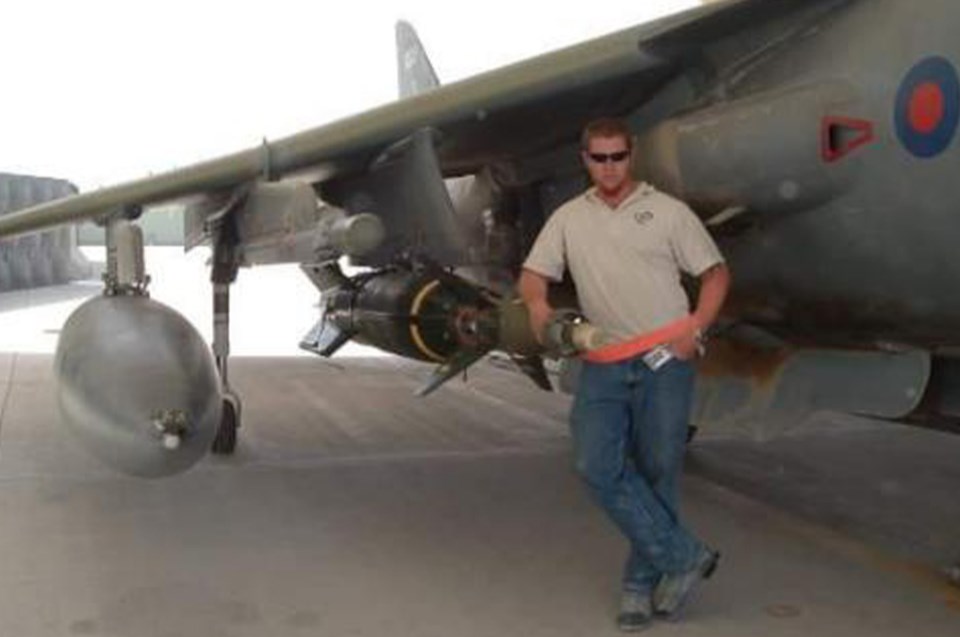STOUGHTON - Mike MacGregor, his wife Jackie and two children, Taylor and Declan, moved to Stoughton in September.
He, his brother and their father had shut down their trucking company, which hauled heavy equipment.
The MacGregor family wanted a change from the big-city atmosphere they had in Leduc, Alta. They were tired of the noise and business, so MacGregor’s friend, Matt Hoffort, suggested they move to Stoughton, and this is what they did.
But MacGregor brings some unique experiences to the small town.
In MacGregor’s younger days, he wanted some excitement in his life, so he applied to work overseas in Afghanistan in construction on a Canadian Armed Forces base.
His father was in Bosnia at the same time.
Mike MacGregor boarded a flight that took over 13 hours, which arrived at the Kabul International Airport in Afghanistan.
When MacGregor walked down the tarmac towards the terminal, he noticed all the bullet holes in the walls of the airport. He worked in Kabul from 2003-2005.
MacGregor said there was a no-fly zone at night, but at times a plane would arrive late, and it would be dark. The runway did not have lights, so vehicles would line the landing strip with headlights on, and the plane would know where the runway was.
This was a dangerous event to land at night, as on either side of the runway were live minefields. One wrong move could have been fatal, according to MacGregor.
For two years, MacGregor made his home in Camp Julien. This camp was located between the ruins of the Queen’s Palace and the King’s Palace. This area was known as the Royal Gardens.
MacGregor’s home consisted of an eight-person canvas tent which included a cot to sleep on.
He was there, with others, to construct a water treatment plant that would produce bottled water. This would save on water being shipped in or getting water from Afghanistan, as that could be sketchy, according to MacGregor.
Every three months, MacGregor would take a leave to go home to Canada or visit such places as Japan, Thailand or parts of Europe.
Nights could be interesting, according to MacGregor. It was then one could not see the strikes coming in. The alarms would go off and they would grab their flak vests and helmets and run to the nearest bunker to wait it out.
After two years, MacGregor would return to Canada for 11 months. He moved to Stoughton for the first time with Hoffort, but after only a month he received a call to return to Afghanistan, this time in Kandahar.
He was in the city from 2006-2009.
This was a three-year term and MacGregor would be responsible for transportation. He would unload planes with vehicle parts.
The base was close to the Kandahar Airfield, and he could feel the rumble of planes each time one would land or take off.
During his last months, he worked for a firm called Compass Security. This company was tasked with the operation of escorting fuel tankers from Pakistan border to the Kandahar Airfield.
At times, they would be under attack, but the convoy was to keep moving at all costs.
The convoy would consist of up to six fuel tankers. They would have two escorts at the front and back. These trips could take four to five hours, and it was their job to protect the fuel tankers.
“The scariest moments are the ones you have no control over,” said MacGregor, “such as being locked in an armored tanker and having to rely on others for your safety.”
“The most heartbreaking moments are standing on the flight line on a ramp ceremony as we pay tribute to fallen soldiers,” said MacGregor.
“As fallen soldiers are carried onto a C-130 Hercules or a C-17 Globemaster for their final flight home [it] is gut wrenching,” he added.
Now, he is settled with a family, working in the trucking industry.
MacGregor said, “If I did not have a family, I would do it again in a heartbeat.”






